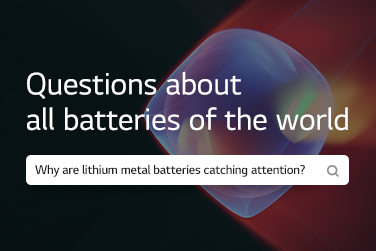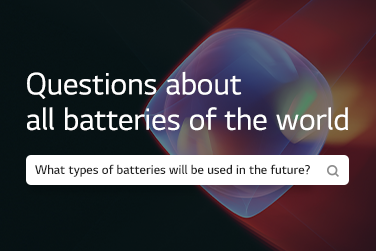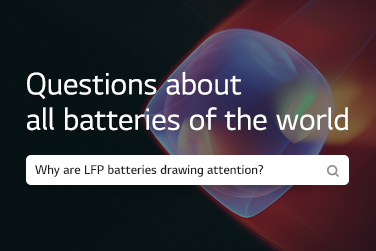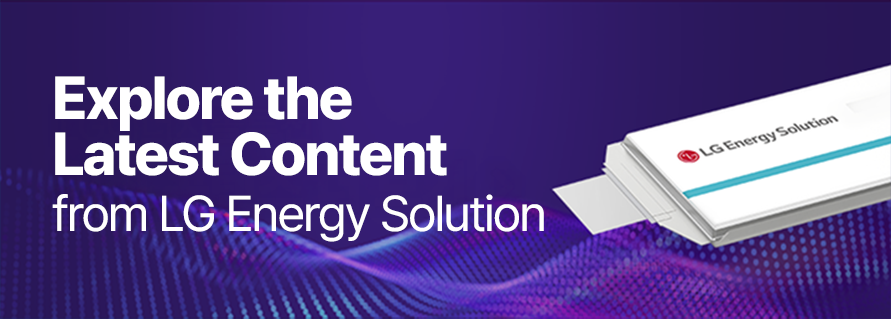We had another extremely cold winter. In such freezing weather, we sometimes see our electronic devices like smartphones die suddenly or run out of battery faster than other times when we are using them. This time, we will learn about the reasons.
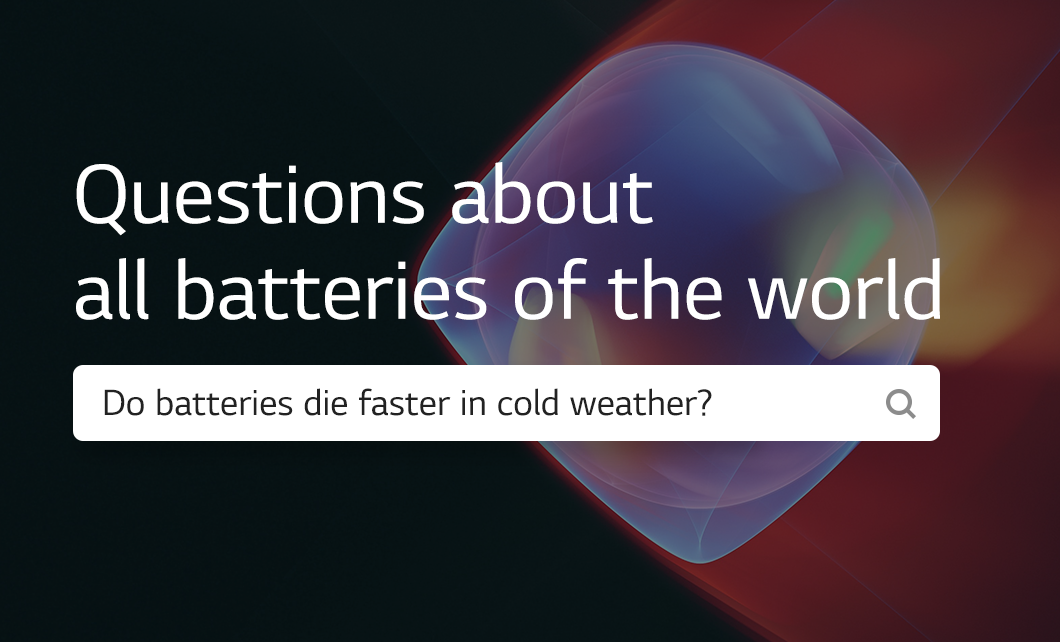
Q. Do batteries die faster in winter?
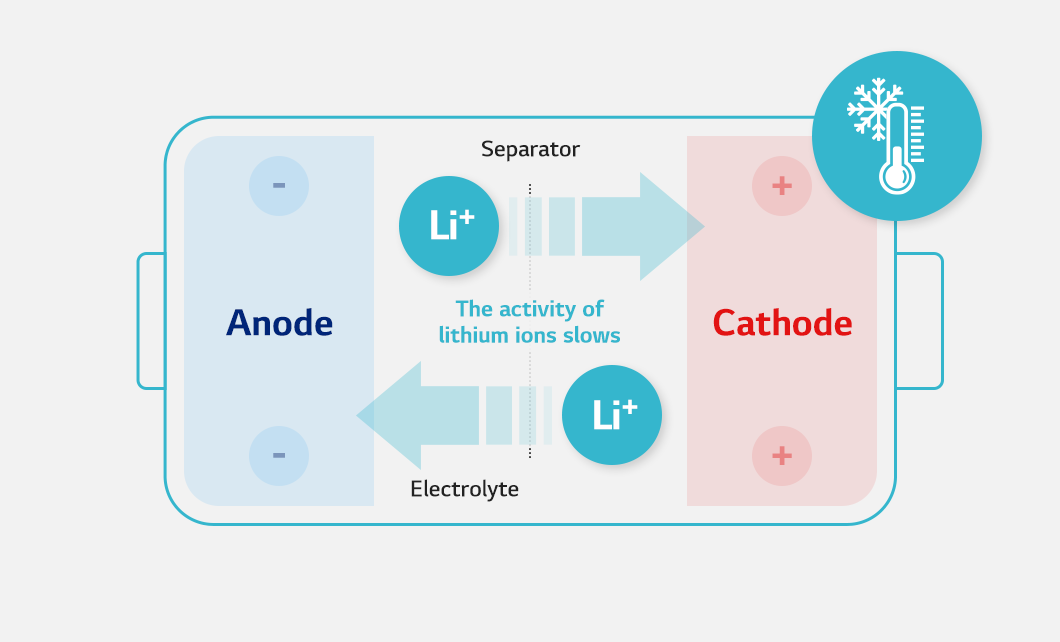
The lithium-ion batteries we use are charged and discharged as lithium ions travel between the cathode and anode through electrolyte.
When the external temperature falls and cools the inside of the battery as well as electrolyte, the activity of lithium ions, which are supposed to move actively, slows.
As lithium ions move slower, the efficiency of battery energy drops, giving the feeling that the battery discharges faster.
Q. How does cold weather affect batteries and EVs?
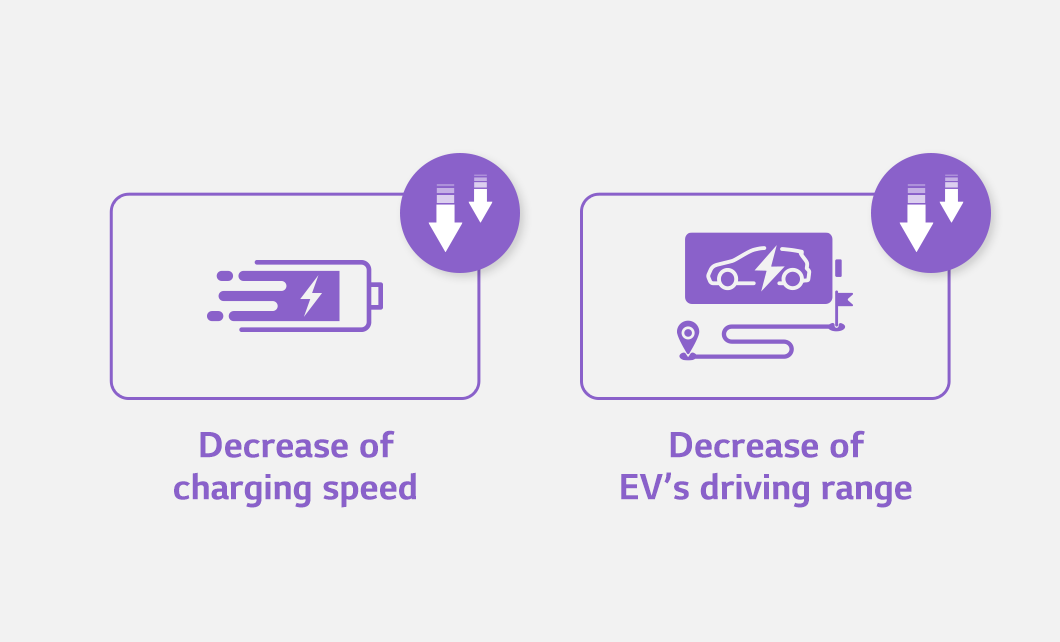
When the low temperature slows the activity of lithium ions, the internal resistance is increased, which can impact battery performance.
First, the charging speed can fall. According to a research paper, charging rates of batteries decline about 30% at -10℃. EVs can suffer a shorter driving range. According to Norwegian Automobile Federation (NAF), EVs’ driving range decreased 18.5% on average in winter.
Q. How can we prevent the cold weather from killing our batteries?
Batteries discharged due to the cold weather normally recover when the temperature rises again, with the lithium ions returning to the previous speed. However, damage to battery materials following temperature fluctuations may affect battery performance. Therefore, it is better to prepare in advance.
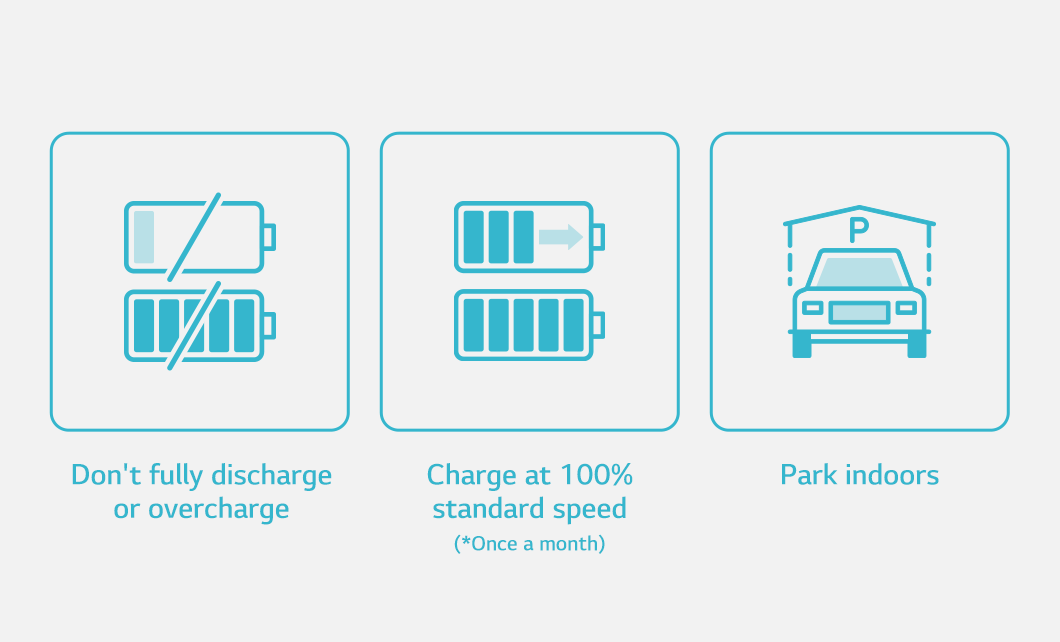
1. Avoid Fully Discharging and Overcharging
Fully discharging and overcharging impacts negatively on lithium-ion batteries. When battery voltage drops below the standard, the internal current collector could be damaged, which can undermine battery performance. Meanwhile, overcharging can reduce battery capacity and life, as well as cause a breakdown. Therefore, electronic devices and EVs equipped with lithium-ion batteries are better when they are charged up to about 80-90% and not completely discharged. EVs are designed to prevent overcharge with battery management system (BMS).
2. Charge at the Standard Speed
Although fast charging is convenient, it is a burden on batteries and can undermine battery life. Charging your battery 100% at standard speed once a month can be a help. Standard charging helps multiple battery cells charge evenly so that the battery performance can be maintained.
3. Park Your EV Indoors and Preheat Your Car
Since lithium-ion batteries are sensitive to temperature, parking indoors is better for your EV in winter. Also, using the high power-consuming heater while driving can rapidly deplete power and cause a plummet in traveling range. So, preheating your car to warm up the inside before you get in and using seat as well as steering wheel heaters can help.
Industry experts are dedicated to reducing lithium-ion batteries’ sensitivity to temperature changes. They are looking for ways such as controlling the viscosity by changing the composition of the solvent in electrolyte, a path for lithium ions, or developing solid-state batteries.
